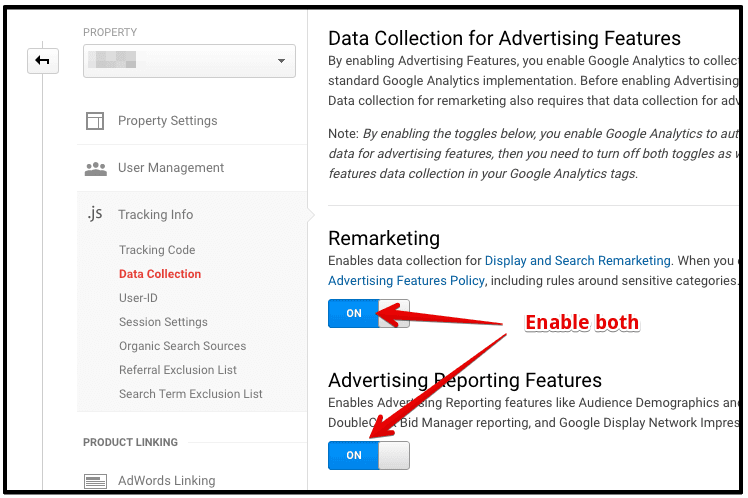Unlocking Remarketing in Google Analytics: Boost Your Conversion Fees
In the electronic landscape, leveraging remarketing abilities within Google Analytics can dramatically influence an organization's conversion rates. By focusing on previous interactions with site visitors, customized promotions can reignite passion and drive conversions. What Is “Remarketing” In Google Analytics?. The art depends on tactical audience division and crafting engaging advertisement web content that resonates with users. Nevertheless, the genuine game-changer originates from thorough evaluation and continual optimization of remarketing strategies. The key to unlocking the complete potential of remarketing depends on understanding user habits and interests to optimize ROI.
Understanding Remarketing in Google Analytics
Remarketing in Google Analytics is an effective device that enables companies to re-engage and target with individuals who have actually formerly engaged with their site or application. By utilizing this attribute, businesses can present targeted advertisements to users as they surf the internet or utilize other apps, reminding them of solutions or items they previously viewed. This critical technique helps organizations stay top-of-mind with prospective customers, raising the chance of conversion.
One secret aspect of remarketing in Google Analytics is the capacity to produce custom target market lists based upon specific standards such as pages seen, actions tackled the site, or group info. These checklists permit companies to customize their remarketing campaigns to various sections of their target market, guaranteeing that the appropriate message reaches the appropriate individuals at the right time.
Moreover, remarketing in Google Analytics provides beneficial insights right into individual actions and the efficiency of advertising and marketing campaigns. By tracking individual communications and conversions, companies can refine their methods to boost targeting and take full advantage of ROI. On the whole, understanding the details of remarketing in Google Analytics is necessary for businesses wanting to improve conversion rates and drive development.
Establishing Up Remarketing Listings
When carrying out remarketing methods in Google Analytics, the preliminary step involves creating tailored target market listings tailored to specific standards. Next off, click on the +New Audience switch and choose the type of target market you desire to produce, such as individuals who saw a details web page or completed a certain activity. You can even more refine your target market by including certain conditions and parameters to guarantee you reach the appropriate individuals with your remarketing campaigns.

Crafting Compelling Remarketing Advertisements
Crafting compelling remarketing ads includes purposefully making messages that resonate with your target audience and drive them to take desired activities. Personalization is crucial in remarketing ads, so take into consideration making use of vibrant ads that show products or solutions that a customer has previously watched on your website.
In addition to personalization, compelling ad duplicate is vital. Your messaging ought to be clear, succinct, and highlight the one-of-a-kind selling points of your solutions or items. Usage strong phone calls to action that motivate customers to act, such as "Store Currently," "Find out Extra," or "Register Today." Consisting of rewards like discount rates or limited-time deals can likewise aid enhance click-through rates.
An aesthetically attractive advertisement is a lot more likely to order the target market's attention and drive them to review your internet site. By integrating customization, influential copy, and distinctive visuals, you can produce remarketing advertisements that efficiently re-engage customers and increase your conversion prices.
Studying Remarketing Efficiency

Conversion rates disclose the portion of customers that finished a wanted activity, such as signing or making a purchase up for an e-newsletter, after clicking on the ad. Examining the cost per purchase assists in understanding the expenses sustained to acquire a consumer via remarketing. By analyzing these performance metrics, marketing professionals can recognize areas for enhancement and fine-tune their remarketing techniques to enhance conversion prices and total project success.
Optimizing Remarketing Approaches

Additionally, maximizing remarketing strategies includes segmenting target markets based on numerous criteria such as demographics, behavior, and passions - What Is “Remarketing” In Google Analytics?. More hints By producing targeted advertisements that reverberate with each section, marketing experts can increase the possibility of re-engaging individuals and driving conversions.
Constant surveillance and optimization of remarketing campaigns based on real-time information and understandings are vital for making the most of ROI and improving conversion prices. By applying a data-driven strategy and refining strategies based on efficiency metrics, marketing professionals can open the complete potential of remarketing in Google Analytics.
Verdict
In final thought, utilizing the power of remarketing in Google Analytics can substantially improve conversion rates by re-engaging with previous internet site visitors via tailored advertisements. By creating customized target market checklists, crafting engaging advertisements, assessing efficiency metrics, and continuously optimizing techniques, companies can optimize ROI in remarketing projects. This data-driven strategy makes sure that advertising efforts are targeted and effective in driving customer engagement and ultimately increasing conversions.
Overall, understanding the intricacies of remarketing in Google Analytics is crucial for services looking to increase conversion rates and drive growth.
You can better refine your target market by adding details conditions and specifications to guarantee you reach the best users with your remarketing projects.
By combining customization, persuasive duplicate, and distinctive visuals, you can produce remarketing advertisements that efficiently re-engage users and boost your conversion prices.
By evaluating these performance metrics, marketing professionals can identify locations for improvement and refine their remarketing strategies to enhance conversion rates and overall project success.
In conclusion, taking advantage of the power of remarketing in Google Analytics can significantly improve conversion rates by re-engaging with previous web Visit This Link site site visitors through tailored advertisements.